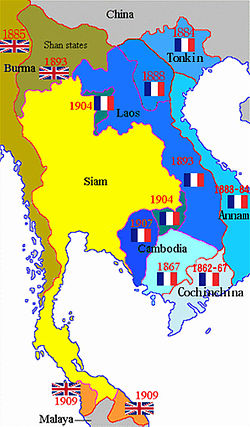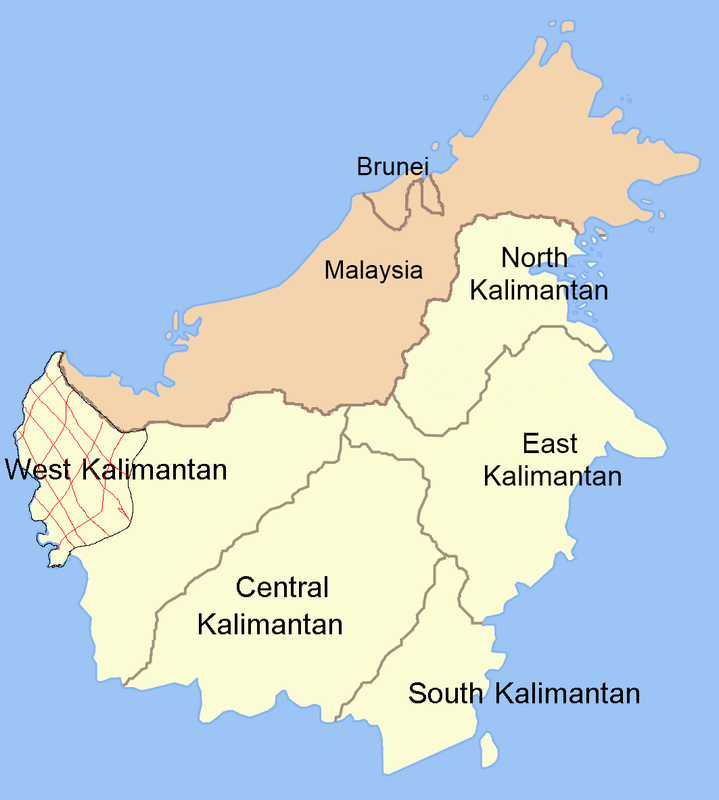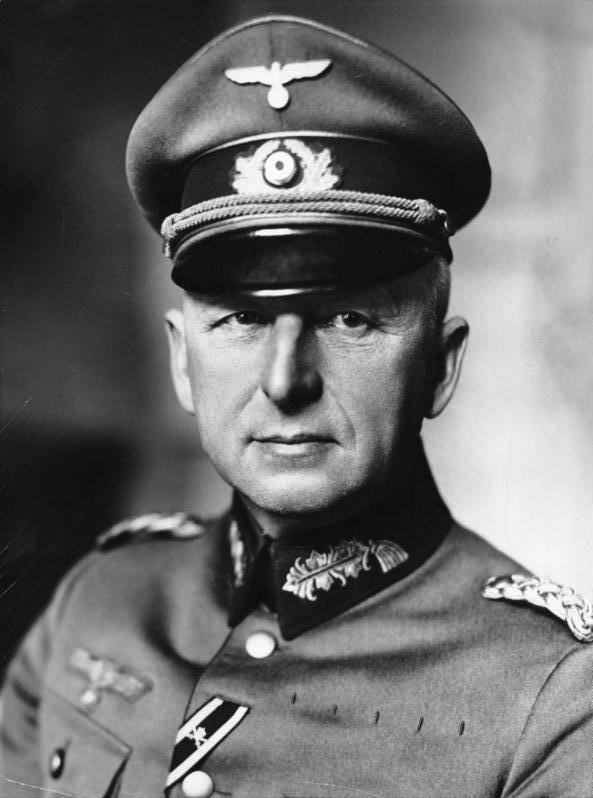Post by Laurent de Gouvion St. Cyr on Dec 4, 2017 14:41:57 GMT
Great Qing 1909 - Placeholder
After the Night of Glorious Succession, the Guangxu Emperor sits on the Dragon Throne unopposed. On the beginning of the Year of the Rooster, the Guangxu Emperor affirms his role as Emperor unopposed by anyone but the people by vowing a version of the Song Oath adjusted for the Qing:
“The World belongs to our Great Qing, to our Ancestors, to the Government, to the People, and to the Military. It does not belong to you.”
The Guangxu Emperor, true to his character, replies in affirmation;
“I would not dare to disagree with you, the World indeed belongs to our Great Qing Empire, and the Nation indeed belongs to the Great Qing People. May the people retain my Mandate and may the Ancestors help me in my duties."
And the Guangxu Emperor sits on the Dragon Throne, more comfortable than ever - he is free from Cixi and the plots of Yuan Shikai. While the Guangxu Emperor still has rivals to his power, he is now a player on the political stage deserving of his position as the Emperor. He opens the gate of the Forbidden Palace to two hundred petitioners each day, giving the Emperor reliable information on the happenings in Beijing.
Prince Qing's Provisional Cabinet
1. Prime Minister: Yikuang, Prince Qing
2. Deputy Prime Minister: Zhao Bingjun
3. Minister of Foreign Affairs: Liang Dunyan
4. Minister of Interior: Charlie Soong
5. Minister of Finance: Zhang Jian
-President of Imperial Bank: Sheng Xuanhai
6. Minister of Education: Yan Xiu
7. Minister of Defense: Yinchang
-Chief of Army: Feng Guozhang
-Chief Admiral: Sa Zhenbing
8. Minister of Justice: Li Guojie
9. Minister of Commerce and Industry: Zaize
10. Minister of Agriculture: Prince Zaitao
11. Minister of Mail and Transport: Tang Shaoyi
12. Special Representative for Tibet: Tsarong Dazang
Prince Qing's cabinet experiences a reshuffle after the execution of Xu Shichang. Inside the cabinet, fear of purging is still widespread, especially with most of the ministers being acquaintances of the traitor Yuan Shikai. Despite this, the Guangxu Emperor has decides to give the cabinet power to issue emergency laws without the Emperor's approval, though it must be approved after a week and the Emperor has the power to veto them.
Politically, the provincial assemblies have been determined in elections, though with little turnout due to illiteracy. With next year being the year for the elections for the National Assembly, a few political parties have signed up for the election:
1. People First Movement (a populist party, emphasizing universal suffrage, reclamation of Chinese pride, and narrowing of the class gap) - led by Zhao Bingjun
2. Radical Progressive Party (a party of intellectuals and radical reforms) - led by Charlie Soong
3. Constitutionalist Party (advocates a constitutional monarchy favoring the gentry and nobility) - led by Tang Hualong
4. Unity Party (a nationalist, conservative party rallying behind the Emperor) - led by Prince Zaitao
5. Social Democratic Party - led by Chen Duxiu
In an effort to improve voter turnout, the Electoral Committee runs a campaign among rural voters, as well as a redesign of ballots.
In regards to developing branches of government akin to the West, the cabinet is rather unwilling to plunge into such ideas. The very thought of an untested legislature is detesting, to say the least. While the judiciary has evolved into being its own branch of government with a different set of Imperial examinations, the candidates for the National Assembly are subjected to the same examination as mid-level executive officials.
On the points for social reform, the New Culture Movement has propped up, led by academic Cai Yuanpei. Zhou Zuoren and Lu Xun, both members of this movement, have been appointed to the committee for simplification. They recommend the use of vernacular (spoken) Chinese in writing, given its familiarity everywhere. The vernacular form of Chinese is tested in rural provinces, by having the bureaucracy commit to it. Rolling for the success of the literacy program.
eWCs9dTL
The usage of vernacular Chinese in rural areas have proved successful, partially owing to the literacy and numeracy initiatives hosted by local businesses. The overall literacy rate rises to 50% and the gender gap in regard to literacy has shrunk, with 28% of the women now being literate. Numeracy remains high, at the 86% rate.
According to reports on the first year of localization in education, the Department of Education agrees to introduce some reforms:
1. The establishment of after-school clubs in vocational, physical, and intellectual fields, especially in cities,
2. The introduction of pinyin into the school curriculum, ensuring literacy in the Latin alphabet as well as Chinese characters,
3. A program of traveling teachers from universities abroad and Beijing to train local educators,
4. Establishment of the Academica Sinica
On the simplification of bureaucracy by adopting metric systems, the Chinese officials have tried to adapt to the system, not without some problems. Rolling for the severity of the issues in implementing the metric system.
The metric system surprisingly encounters little issue in use by the government. Still, the examinations for public service demand knowledge of metric units.
Protests have risen in regard to the policy of racial integration. A pamphlet distributed by the Tongmenhui states:
Remember Jianyin! Remember Yangzhou! The Manchu rulers are murderous barbarians, forever bloodthirsty of the true Chinese. Repel the Emperor's attempt at integration and repel the invaders from China!
A counter-propaganda campaign is enacted, reminding the people that the Manchu had cooperated with the Han in their takeover from the oppressive Ming. Rolling for the success of the counter-propaganda.
It is a success.
Last part of the turn; roll for progress of the suffrage movement.
Economic growth still occurs. A rise in the iron and electricity industries is observed, with them taking 20% of the Great Qing's industrial output. Tariffs are raised on traded goods for non-agreement nations to ensure self-sufficiency. Gud econ all around.
Financially, more introduction of paper money, yay.
Interesting stuff nao. Military.
Rolling for progress of the Jinyiwei's mission inside the Tongmenghui.
The Jinyiwei has infiltrated the top-level leadership in the Tongmenghui, knowing most of its plans and affiliates as well as the movements of leaders like Sun Yat-sen and Huang Xing. Not only infiltration, the Jinyiwei attempts to bring disunity in the Tongmenghui by driving ambitious mid-level leaders into action, dropping harmful rumors, and bribery. Roll for success.
Not too much opposition exists to Sun Yat-sen, only a small clique.
In regard to the Army, the Beiyang Army, the second most elite army in China has been merged with the cadre army, forming the Imperial Standing Army of 300,000 infantrymen, constructed into 30 Divisions. The cadre army, having been equipped well and well-versed in Western drill, trains the Beiyang Army.
The cadre army now employs targeting formulas for artillery as well as adopting wireless telegraph in each subdivision of the army. While training based on initiative can ensure effectiveness outside of radio range, the wireless telegraph is adopted in the military.
Development on China's arsenals as well as shipyards continue. Roll.
Arsenals
Naval Yards (developing Fuzhou and Jiangnan, building up Shanghai and Shenzhen)
The expansion of Chinese military industry, arsenals for infantry and shipyards for the navy has been successful. Fuzhou and Jiangnan can produce dreadnoughts now, while Shanghai and Shenzen can produce heavy cruisers. Sixteen Ning Hai heavy cruisers have been built. Now, a design of light cruisers, the Hongwu is made. Rolling for quality of the design.
Revisions need to be made. Rolling for progress.
The design improves. 10 Hongwu-class light cruisers are to be built for 1910.
The Convention on Tibet with the government of Prime Minister Santa Anna has led to an agreement where British troops retreat from Tibet, while a joint development scheme is done in Guangdong and Tibet with the British. Moreover, the Convention signals the repeal of the Treaty of Tianjin's foreign ships' navigation on Chinese waters clause, reclaiming territorial sovereignty.
An agreement on agricultural machines and fertilizers is signed with A-H (Chancellor Otto Von Bismarck ).
·····························
After the Night of Glorious Succession, the Guangxu Emperor sits on the Dragon Throne unopposed. On the beginning of the Year of the Rooster, the Guangxu Emperor affirms his role as Emperor unopposed by anyone but the people by vowing a version of the Song Oath adjusted for the Qing:
“The World belongs to our Great Qing, to our Ancestors, to the Government, to the People, and to the Military. It does not belong to you.”
The Guangxu Emperor, true to his character, replies in affirmation;
“I would not dare to disagree with you, the World indeed belongs to our Great Qing Empire, and the Nation indeed belongs to the Great Qing People. May the people retain my Mandate and may the Ancestors help me in my duties."
And the Guangxu Emperor sits on the Dragon Throne, more comfortable than ever - he is free from Cixi and the plots of Yuan Shikai. While the Guangxu Emperor still has rivals to his power, he is now a player on the political stage deserving of his position as the Emperor. He opens the gate of the Forbidden Palace to two hundred petitioners each day, giving the Emperor reliable information on the happenings in Beijing.
Prince Qing's Provisional Cabinet
1. Prime Minister: Yikuang, Prince Qing
2. Deputy Prime Minister: Zhao Bingjun
3. Minister of Foreign Affairs: Liang Dunyan
4. Minister of Interior: Charlie Soong
5. Minister of Finance: Zhang Jian
-President of Imperial Bank: Sheng Xuanhai
6. Minister of Education: Yan Xiu
7. Minister of Defense: Yinchang
-Chief of Army: Feng Guozhang
-Chief Admiral: Sa Zhenbing
8. Minister of Justice: Li Guojie
9. Minister of Commerce and Industry: Zaize
10. Minister of Agriculture: Prince Zaitao
11. Minister of Mail and Transport: Tang Shaoyi
12. Special Representative for Tibet: Tsarong Dazang
Prince Qing's cabinet experiences a reshuffle after the execution of Xu Shichang. Inside the cabinet, fear of purging is still widespread, especially with most of the ministers being acquaintances of the traitor Yuan Shikai. Despite this, the Guangxu Emperor has decides to give the cabinet power to issue emergency laws without the Emperor's approval, though it must be approved after a week and the Emperor has the power to veto them.
Politically, the provincial assemblies have been determined in elections, though with little turnout due to illiteracy. With next year being the year for the elections for the National Assembly, a few political parties have signed up for the election:
1. People First Movement (a populist party, emphasizing universal suffrage, reclamation of Chinese pride, and narrowing of the class gap) - led by Zhao Bingjun
2. Radical Progressive Party (a party of intellectuals and radical reforms) - led by Charlie Soong
3. Constitutionalist Party (advocates a constitutional monarchy favoring the gentry and nobility) - led by Tang Hualong
4. Unity Party (a nationalist, conservative party rallying behind the Emperor) - led by Prince Zaitao
5. Social Democratic Party - led by Chen Duxiu
In an effort to improve voter turnout, the Electoral Committee runs a campaign among rural voters, as well as a redesign of ballots.
In regards to developing branches of government akin to the West, the cabinet is rather unwilling to plunge into such ideas. The very thought of an untested legislature is detesting, to say the least. While the judiciary has evolved into being its own branch of government with a different set of Imperial examinations, the candidates for the National Assembly are subjected to the same examination as mid-level executive officials.
On the points for social reform, the New Culture Movement has propped up, led by academic Cai Yuanpei. Zhou Zuoren and Lu Xun, both members of this movement, have been appointed to the committee for simplification. They recommend the use of vernacular (spoken) Chinese in writing, given its familiarity everywhere. The vernacular form of Chinese is tested in rural provinces, by having the bureaucracy commit to it. Rolling for the success of the literacy program.
eWCs9dTL
The usage of vernacular Chinese in rural areas have proved successful, partially owing to the literacy and numeracy initiatives hosted by local businesses. The overall literacy rate rises to 50% and the gender gap in regard to literacy has shrunk, with 28% of the women now being literate. Numeracy remains high, at the 86% rate.
According to reports on the first year of localization in education, the Department of Education agrees to introduce some reforms:
1. The establishment of after-school clubs in vocational, physical, and intellectual fields, especially in cities,
2. The introduction of pinyin into the school curriculum, ensuring literacy in the Latin alphabet as well as Chinese characters,
3. A program of traveling teachers from universities abroad and Beijing to train local educators,
4. Establishment of the Academica Sinica
On the simplification of bureaucracy by adopting metric systems, the Chinese officials have tried to adapt to the system, not without some problems. Rolling for the severity of the issues in implementing the metric system.
The metric system surprisingly encounters little issue in use by the government. Still, the examinations for public service demand knowledge of metric units.
Protests have risen in regard to the policy of racial integration. A pamphlet distributed by the Tongmenhui states:
Remember Jianyin! Remember Yangzhou! The Manchu rulers are murderous barbarians, forever bloodthirsty of the true Chinese. Repel the Emperor's attempt at integration and repel the invaders from China!
A counter-propaganda campaign is enacted, reminding the people that the Manchu had cooperated with the Han in their takeover from the oppressive Ming. Rolling for the success of the counter-propaganda.
It is a success.
Last part of the turn; roll for progress of the suffrage movement.
Economic growth still occurs. A rise in the iron and electricity industries is observed, with them taking 20% of the Great Qing's industrial output. Tariffs are raised on traded goods for non-agreement nations to ensure self-sufficiency. Gud econ all around.
Financially, more introduction of paper money, yay.
Interesting stuff nao. Military.
Rolling for progress of the Jinyiwei's mission inside the Tongmenghui.
The Jinyiwei has infiltrated the top-level leadership in the Tongmenghui, knowing most of its plans and affiliates as well as the movements of leaders like Sun Yat-sen and Huang Xing. Not only infiltration, the Jinyiwei attempts to bring disunity in the Tongmenghui by driving ambitious mid-level leaders into action, dropping harmful rumors, and bribery. Roll for success.
Not too much opposition exists to Sun Yat-sen, only a small clique.
In regard to the Army, the Beiyang Army, the second most elite army in China has been merged with the cadre army, forming the Imperial Standing Army of 300,000 infantrymen, constructed into 30 Divisions. The cadre army, having been equipped well and well-versed in Western drill, trains the Beiyang Army.
The cadre army now employs targeting formulas for artillery as well as adopting wireless telegraph in each subdivision of the army. While training based on initiative can ensure effectiveness outside of radio range, the wireless telegraph is adopted in the military.
Development on China's arsenals as well as shipyards continue. Roll.
Arsenals
Naval Yards (developing Fuzhou and Jiangnan, building up Shanghai and Shenzhen)
The expansion of Chinese military industry, arsenals for infantry and shipyards for the navy has been successful. Fuzhou and Jiangnan can produce dreadnoughts now, while Shanghai and Shenzen can produce heavy cruisers. Sixteen Ning Hai heavy cruisers have been built. Now, a design of light cruisers, the Hongwu is made. Rolling for quality of the design.
Revisions need to be made. Rolling for progress.
The design improves. 10 Hongwu-class light cruisers are to be built for 1910.
The Convention on Tibet with the government of Prime Minister Santa Anna has led to an agreement where British troops retreat from Tibet, while a joint development scheme is done in Guangdong and Tibet with the British. Moreover, the Convention signals the repeal of the Treaty of Tianjin's foreign ships' navigation on Chinese waters clause, reclaiming territorial sovereignty.
An agreement on agricultural machines and fertilizers is signed with A-H (Chancellor Otto Von Bismarck ).
·····························















